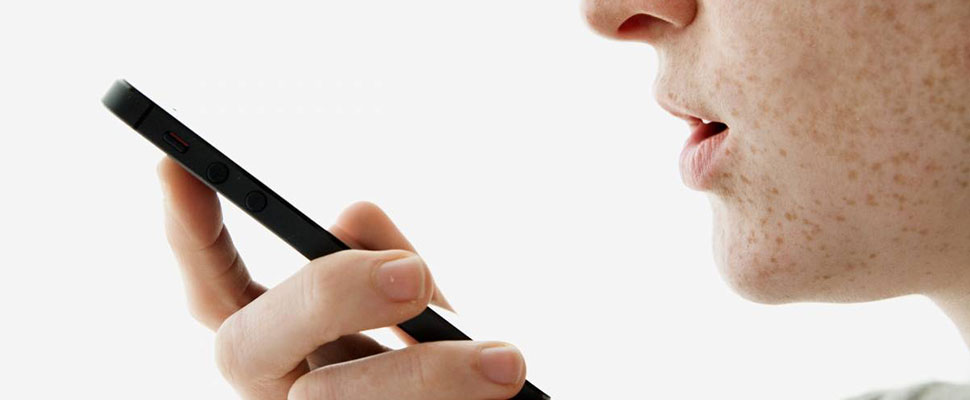Why is allowing a virtual assistant access to your home a risk?
In recent days, a controversy has been maintained around the problem that represents the existence of virtual assistants to the privacy of people who use them

"Hey, Siri"; "Hey, Cortana" or "Ok, Google" are phrases that, day after day, are heard more often among people, when wanting to put a virtual assistant IGNORE INTO operation.
Whether searching for a phone number or opening a web page, virtual assistants are increasingly accepted among users of new technologies. In 2016, more than 2.6 billion people had a mobile device, according to eBay.
Leer en español: ¿Por qué permitir el acceso a tu casa a un asistente virtual es un riesgo?
However, according to the same company, by 2019 almost 6.1 billion people will have a Smartphone, so access to the Internet will also increase; and, of course, to the assistants who come configured in these.
From mobile to home
When in 2011 Apple innovated with the introduction of Siri as the first personal assistant on a cell phone, many of the big entrepreneurs saw in this invention the perfect way to take human needs to another level.
Over time, other large technological empires began to implement their own virtual "secretaries". In 2014, it was Microsoft with Cortana and then Google with its Assistant of the same name, in 2016.
But, this new technology did not end there. In parallel, the virtual assistants increased their spectrum to get out of simple small devices, and to control, even, a house in its entirety.
An example of this is Alexa, the Amazon virtual assistant that appeared in 2014 along with the Amazon Echo smart speakers. With this technology, the user could play music, set the alarm clock, among other tasks that could also be done from the cell phone.
However, it had a plus: turn on the TV, close automated curtains and even control the movement of the main door of the house.
What in the past seemed impossible, with Alexa became a reality.
A stranger at home
Of course, the competition was not going to settle for seeing Amazon succeed, especially in the homes of the United States and part of Europe. Therefore, at the end of 2016, Google decided to enter the home assistants' career with the 'Google Home'. This new device emulated Alexa perfectly, but with a much more stylized touch, worthy of the internet multinational.
However, like all technology and innovation, the risks of entrusting the operation of a house in the hands of a machine are not non-existent.
For a software to reach perfection dozens of updates and developers working on them are necessary. Even with all this, such excellence is almost impossible to achieve.
This is why it was not a surprise, but a wake-up call, a problem that Alexa recently showed, in relation to its voice synchronization. A few days ago, a couple from Portland, Oregon (USA), reported that the virtual assistant recorded a private conversation with his partner and sent it to several of his contacts at random; all this, without the consent of the couple.
According to the newspaper La Vanguardia "sometimes the virtual assistant confuses the command order with other similar words". So, even unintentionally, a person can activate the technological device accidentally, without having to say "Alexa", in the case of Amazon, or "Ok, Google", in Google Home.
An inconvenience to which is added, also, that of the electronic pirates.
The 'Dolphin Attack"
Recently, new malware was known to directly attack virtual assistants, both on mobile and home devices.
The 'Dolphin Attack' (Dolphin Attack) is a new technique that the most experienced hackers are using to steal personal information, without the users being able to notice it.
Just as dolphins can hear sounds that are totally imperceptible to human ears, electronic pirates send by means of text messages, videos or music, noises that, coded, first activate the attendees and then send orders to them.
For example, without realizing it, a person may be giving their personal information to a stranger, while laughing for a video they are viewing on the internet.
The discovery was made by Chinese and American researchers, who for more than two years have been conducting experiments that demonstrate the feasibility to develop and execute this type of malicious software.
"In the wrong hands, technology could be used to unlock doors, transfer money or buy things online, simply with the music played on the radio," says the New York Times.
In addition, with the inclusion of voice assistants such as Siri, in the Mac, or Cortana in PC's with Windows, it is also left to the luck the files that, hypothetically, are more secure in a computer than in a cell phone.
In any case, the decision remains with the user: doing things for himself or trusting his life in the hands of a personal assistant and taking the risks that this would bring.
Latin American Post | Christopher Ramírez Hernández
Translated from "¿Por qué permitir el acceso a tu casa a un asistente virtual es un riesgo?"





